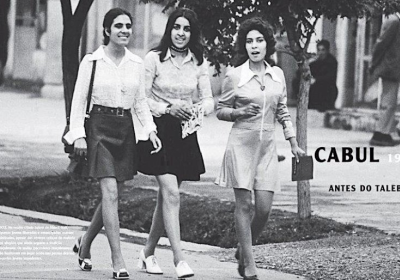As a tsunami of crocodile tears engulfs Western politicians, Afghanistan's history is suppressed, writes John Pilger.
Women's rights
Afghan Women’s Mission co-director Sonali Kolhatkar spoke with the Revolutionary Association of the Women of Afghanistan (RAWA) about the unfolding situation on the ground.
The campaign to end period poverty gains momentum in Australia, with state governments starting to provide free sanitary products in schools, Rachel Evans reports
Kurdish community in Sydney calling on the United Nations to prosecute Turkish dictator Recep Tayyip Erdoğan for crimes against women in the occupied canton of Afrin, reports Peter Boyle
Demonstrations in Poland to defend abortion rights have become a catalyst for people’s anger at the ultraconservative government. Dagmara Zawistowska-Toczek speaks about this new movement.
For eight months in 2018-19, Sudan was gripped by an unprecedented mass movement to overthrow the 30-year dictatorship of Omar al-Bashir. Green Left spoke to Khalid Hassan about the achievements of the Sudanese people and the difficult challenges ahead.
The brutal face of hard right and fascist reaction has been on vivid display on the issues of women’s rights and the climate crisis in the past few weeks, writes Phil Hearse.
Women’s and legal groups are pushing for the New South Wales state government to amend the sexual consent law to make it clear that consent must be active and voluntary.
The Association of Superannuation Funds of Australia (ASFA) has reported a huge disparity in the superannuation that women retire on compared with men.
Last year, the mean superannuation balance for women across all age groups – from workers just starting out to retirees – was $68,000, compared with $112,000 for men.
Women who retired in 2016 had an average super balance of $157,000, while men had an average balance of $271,000.
The Geelong Women Unionists Network, with the support of Geelong Trades Hall Council (GTHC), is holding a conference, Working Women Get Organised, on November 11 which is open to everyone.
“I’d like to call bullshit.” So declared Melissa Barbieri, a former captain of Australian women’s football (soccer) team the Matildas, on the symbolic support for women’s rights offered by sporting clubs and bodies on International Women’s Day.
- Previous page
- Page 3
- Next page











